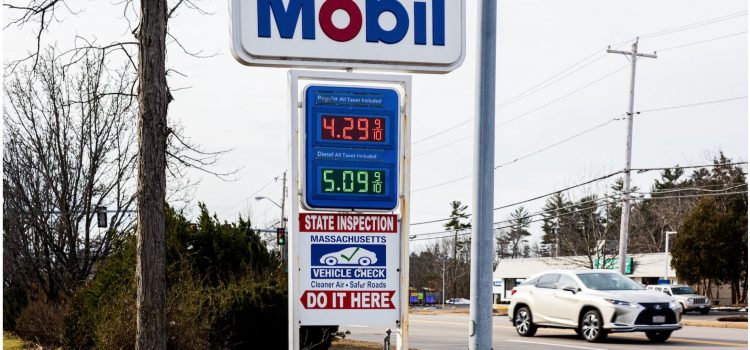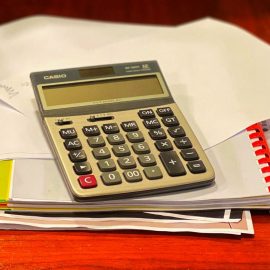
This is a free excerpt from one of Shortform’s Articles. We give you all the important information you need to know about current events and more.
Don't miss out on the whole story. Sign up for a free trial here .
Will inflation go back down eventually? What’s causing it to rise? When do economists predict it will end?
Until recently, many felt inflation would relax once the pandemic-induced supply and demand imbalances aligned. But some now acknowledge that even if inflation is caused by the pandemic, the pandemic is nowhere near over—and neither is inflation.
Read on to learn if inflation will go back down soon or, if not, how long it will last.
Will Inflation Go Back Down?
The pattern of rising inflation doesn’t appear likely to change any time soon. Largely in response to the tight labor market, wages rose by 4.6% last September compared to 2020. This combination of rising prices and rising wages has many wondering if inflation will go back down, with economists warning of persistent inflation.
What’s Driving Prices Higher?
Rising prices largely reflect supply problems dovetailing with increased consumer demand. Energy prices in particular have also been subject to global political forces (production decisions by OPEC and Russia) as well as weather events. The labor shortage is also a factor—with fewer factory and service workers, companies are having trouble meeting demand, leading to scarcity-induced price increases and higher labor costs, which they pass on to customers.
How Long Will This Last?
So, if inflation won’t go down soon, then how long will it last? Until recently, most economists predicted that inflation would be a short-term phenomenon. Once supply and demand issues settle out, the reasoning went, prices will stabilize. And it’s true that much of the current inflation is actually a reflection of the economic recovery, not structural imbalances—prices at hotels, for example, are up 19.8% from back in 2020 but only 1.9% if compared with 2019.
Some economists, though, are starting to revise this assessment, coming around to the possibility that inflation will not go back down for a while. One reason for this is the realization that even if rising prices are pandemic-based, the pandemic is far from over; Covid-19 and its variants are still wreaking havoc around the world and the problems affecting supply chains won’t resolve any time soon.
Economists also worry that inflation may become a self-fulfilling prophecy—when the general public starts to expect rising prices, businesses feel more confident increasing their prices (in anticipation of future cost increases), and workers start demanding increased wages to match. A cycle of increased wages and prices can feed itself in an ever-ascending loop.
What Do the Next Few Years Hold?
For the moment, consumers and investors seem fairly unconcerned about rising prices. Patterns of investment in U.S. Treasuries indicate that most people think inflation will go back down. Consumers, so far, have been ponying up for increased prices, possibly buoyed by healthy savings accounts built up during the pandemic and a pent-up desire to spend.
And, despite their differences, most economists agree on one thing—inflation is notoriously hard to predict. Inflation will probably stick around for a while before it goes back down, but for how long, and what effect it will have on the economy as a whole, is anybody’s guess.

Want to fast-track your learning? With Shortform, you’ll gain insights you won't find anywhere else .
Here's what you’ll get when you sign up for Shortform :
- Complicated ideas explained in simple and concise ways
- Smart analysis that connects what you’re reading to other key concepts
- Writing with zero fluff because we know how important your time is






